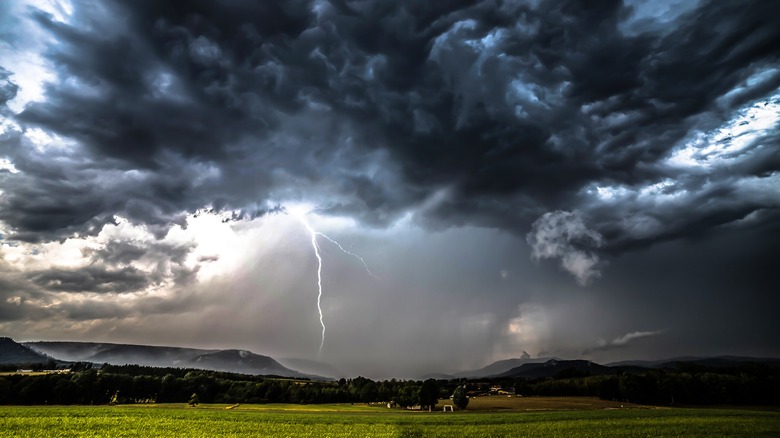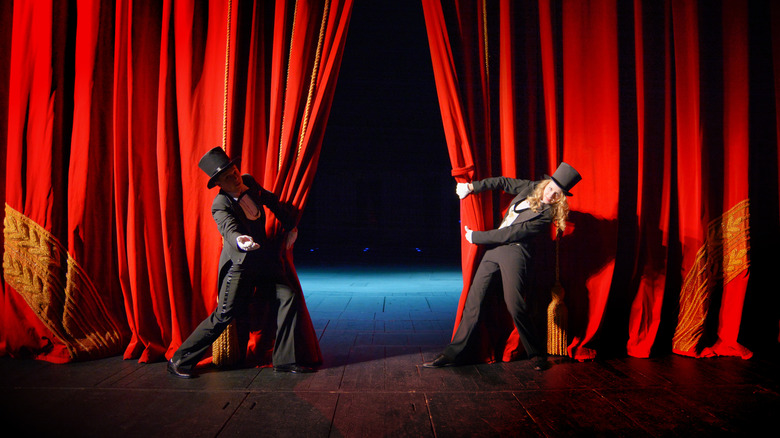Why Do We Say Steal My Thunder?
English has been a language in one form or another for almost two millenniums, and the words and turns of phrase we use have been informed by a variety of sources (per English Club). For example, a bit of human physiology comes from the Bible: We say "Adam's Apple" to refer to a protrusion in the necks of men and post-adolescent boys, a reference to the creation story in Genesis 3. Similarly, other phrases come from gruesome torture in the Middle Ages, such as "raked over the coals," according to Grammarist.
Another source of idioms and phrases used in English comes from the theater. As London Theater notes, several phrases that we use have emerged from superstitions or technical aspects of stagecraft, such as "break a leg," "the show must go on," and "in the limelight." Another English-language phrase that came from the theater is "to steal [one's] thunder," meaning to take attention that should have rightfully gone to someone else.
John Dennis' thunder was stolen
Prior to the invention of synthesized sound, sound effects in the theater had to be produced mechanically. For example, as Theatre Crafts explains, the sound of footsteps could be created by an offstage machine that used rotating cams to knock plungers against a box, creating a loud "thud." When it came to thunder, SFX artists could produce the sound by, say, rolling metal balls down a trough or shaking a thin piece of metal, according to Mental Floss.
In the early 1700s, John Dennis invented a new way of producing the thunder effect for a production of the John Webster play "Appius and Virginia." Instead of grinding lead balls in a bowl, Dennis used metal balls in what was known as the "mustard bowl" technique. Webster's play came and went with no real attention paid to it, but Dennis' new thunder effect was sensational.
Some time later, Dennis was at a production of "MacBeth," when he heard his new thunder sound effect. "That's my thunder, by God! The villains will not play my play but they steal my thunder," he shouted from his seat, causing a raucous during the production, yet at the same time giving birth to a new phrase for the English language.

